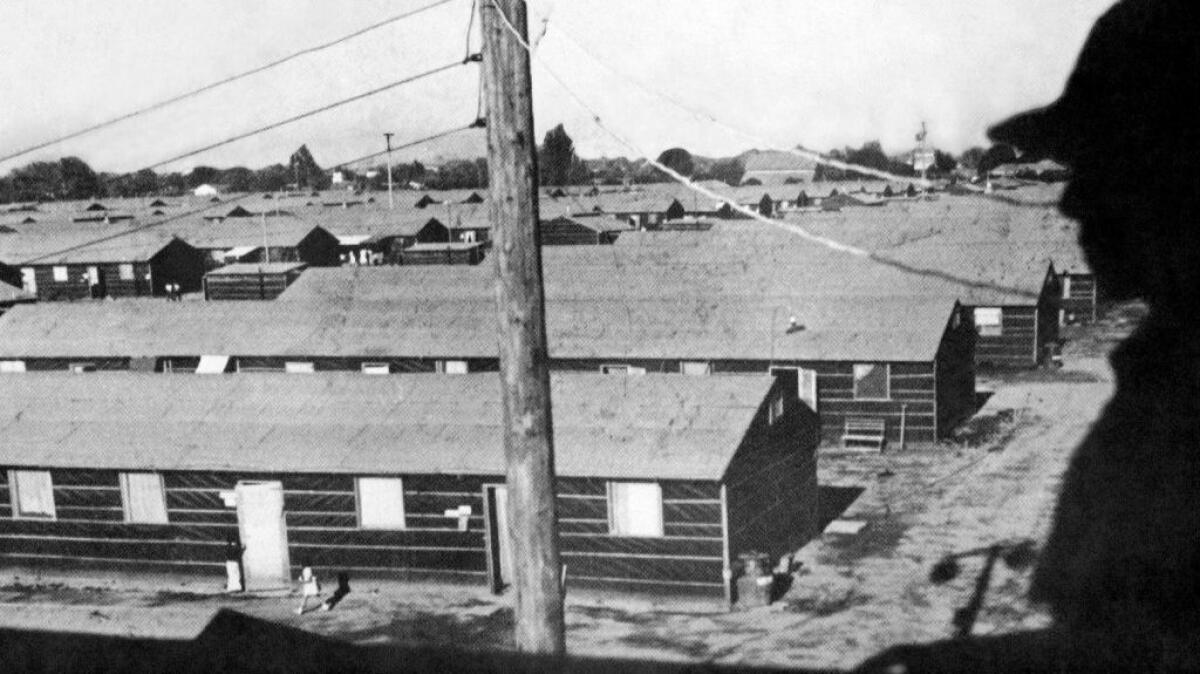Trump should renounce Muslim registry. America is better than that.

- Share via
This week surrogates for President-elect Donald Trump astonishingly invoked one of America’s darkest moments to lay the groundwork for one of Trump’s more controversial campaign proposals, a Muslim immigrant registry. They invoked the internment of 120,000 Japanese-Americans in camps and converted horse stables following the attack on Pearl Harbor that pushed the United States into World War II.
After Trump’s repeated, forceful remarks during the presidential campaign, no one should be surprised to see this nation begin an uncomfortable, emotional conversation about national security and the vetting of immigrants who might pose a threat to it. But no one should accept policies that go too far, either, and any invocation of internment except to condemn it should be unwelcome in Trump’s America or any president’s America.
In 1944, the U.S. Supreme Court ruled such internment legal, upholding in the case of Korematsu v. United States the constitutionality of Executive Order 9066, ordering internment regardless of citizenship. Seventy years later, Justice Antonin Scalia publicly said the court “was wrong” to uphold internment but added, “You are kidding yourself if you don’t think the same thing will not happen again.”
Let’s be plain: It mustn’t.
Thursday night, George Takei, best known as Sulu on the original “Star Trek” and as an activist on social media, told MSNBC’s Lawrence O’Donnell that a Muslim registry is a “prelude toward internment.” Takei and his family were among those segregated from their fellow Americans in the 1940s. He inspired and starred in the short-lived Broadway play, “Allegiance,” which debuted at the Old Globe Theatre in San Diego.
Takei’s remarks came a day after Trump supporter Carl Higbie told Fox News that a Muslim registry would be legal and that the registration of Japanese Americans during World War II was a precedent for it.
Higbie later told MSNBC’s Chris Matthews, “You have to register your car. Most states, like Connecticut, my own, we have to register our guns. We have to register a ton of things.”
People are not things.
Yet Trump won, in part because of his hard lines on unauthorized immigration, a border wall and the need to “certainly implement” a database of Muslims, a position he later labeled “extreme vetting.”
Now, a backpedaling Trump spokesman says Trump “never advocated” for such a registry and will formalize his vetting policies after the inauguration. What will it look like? Who knows, but the spokesman cited the National Security Entry-Exit Registration System, in place for nine years after the Sept. 11, 2001, attacks. It required men 16 years or older from 25 countries — all but one, North Korea, a Muslim-majority country — to register upon entry to the U.S. and to check in regularly with immigration officials. It monitored more than 80,000 males but was seen as a strategic and ethical failure.
President Barack Obama ended the program because of its redundancies and inefficiencies. Current refugee screening procedures involve multiple agencies and can take more than two years. Can those be improved? Everything can, and the nation is about to discuss immigration on a mass scale. This editorial board hopes that’s done with dispassion and not big, cultural leaps backward.
America is better than its darkest moments. Its government must prove that to its public again.
More to Read
A cure for the common opinion
Get thought-provoking perspectives with our weekly newsletter.
You may occasionally receive promotional content from the Los Angeles Times.










